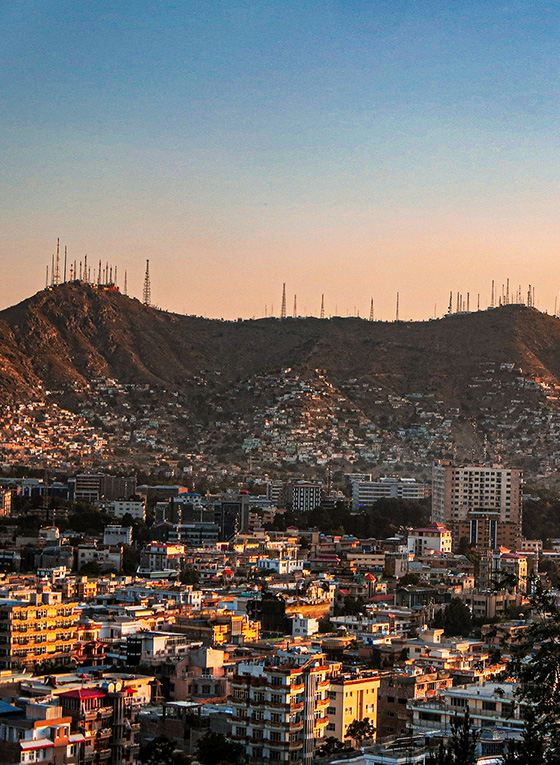Evacuations from Israel and High-Risk Locations Call +44 (0)1202 308810 or Contact Us →

Kabul Suicide Bombing and Ongoing Risks
28 Dec 2017
The Islamic State’s Afghan off-shoot claimed responsibility for three bombs detonated in Kabul. The bombs targeted a Shia discussion forum at the Tibian Social and Cultural centre.
Key Points
- The Islamic State’s Afghan off-shoot claimed responsibility for three bombs detonated in Kabul.
- The bombs targeted a Shia discussion forum at the Tibian Social and Cultural centre.
- 41 people were reported killed and over 80 injured.
SITUATIONAL SUMMARY
Terrorism: At least 41 people have been killed and a further 80 injured in a suicide bomb attack at the Tibian Social and Cultural Centre in central Kabul. The attack occurred around 10:30 am local time in the basement meeting room of the centre. The initial blast was followed by two further explosions in the nearby area. There have not been any injuries reported from the second and third explosions. The Islamic State (IS) group claimed responsibility for the attack. The attack targeted those attending the Shia centre for a discussion forum to commemorate the Soviet invasion of Afghanistan. A number of students, journalist and media outlets were among those attending the forum. The Taliban issued a statement to say that they were not involved in the bombings. President Ashraf Ghani has stated that the latest attack is an unpardonable crime against humanity.
Security forces cordoned off the site and have blocked main roads to the scene. Earlier this week at least ten people were killed in a similar attack also claimed by IS. Enhanced security measures have been put in place across Kabul.
Solace Global Comment
Afghanistan has the highest number of victims of explosive devices in the world, it is estimated that 140 people are killed every month through roadside bombs or suicide attacks. Islamic State have conducted attacks in Afghanistan since they announced their establishment in the area in January 2015, known as the Islamic State Khorasan branch. The group has since lost Afghan territory to the Taliban and operations conducted by Afghan and NATO forces. IS frequently targets Shia Muslims as the group considers them non-Muslims and aims to trigger wider conflict between Shia and Sunni Muslims. In recent months IS has launched several mass shootings, bombings and assassinations across the country. In October 2017, at least 39 were killed in a Mosque belonging to the Shia minority. The prominence of the group has led to an increase in United States airstrikes against militants throughout Afghanistan.
This attack follows a similar bombing conducted in November 2017 against a private television station. In 2017 there has been a 35% increase in violence by militant groups against journalists and media workers , due in part to the withdrawal of foreign combat troops. It has been reported that Afghanistan remains one of the world’s most dangerous countries for journalists and media workers, this is often related to the desire that IS has for media coverage and its distribution of propaganda. Although the Taliban are not known to specifically target Shias, they also frequently carry out attacks across the country and will target media workers.
These attacks have increased pressures on Ghani’s western-backed government to improve security. Kabul has already seen an extensive installation of security walls, and a heightened number of police checkpoints following the repeated attacks on the city. The attacks over the last year and increased intervention from the US is likely to result in further conflict between insurgents and state forces. It is likely that they will continue to conduct high profile attacks in cities in order to make an impact and undermine confidence in security.
SECURITY ADVICE
TerrorismSevereThis attack indicates that Afghanistan remains highly vulnerable to attacks and that terror cells may effectively operate throughout the country. An ongoing insurgency can often cause widespread conflict, with civilians often directly targeted in addition to security forces. Travellers should assess if their travel is business critical.
If caught in a terror situation, travellers are advised to RUN – HIDE – TELL – FIGHT.
RUN – If in a location where gunfire or explosions are heard, leave the area or building by any safe and available exit immediately.
HIDE – If unable to run away, find suitable cover or barricade yourself in a room. Remember to silence your phone and turn vibrate off.
TELL – Inform emergency services or alert someone who is able to do it for you. Once police arrive, comply with their instructions and do not make any sudden movements.
FIGHT – As a last resort, if confronted with a gunman, it is recommended to fight back by using the element of surprise by shouting, screaming and running fast at the attacker. If sheltered with others, convince them to do the same and rush the attacker all at once. Ensure the person entering the shelter is the attacker and not law enforcement.
Solace Global would advise clients to employ substantial security measures when visiting Afghanistan â an armed security detail and the use of armoured vehicles should be considered as a minimum security standard for travel throughout the country. Use of a traveller tracking app with an intelligence feed will permit employers to exercise additional duty of care, and allow travellers to be kept aware of the relevant changes in the security situation.